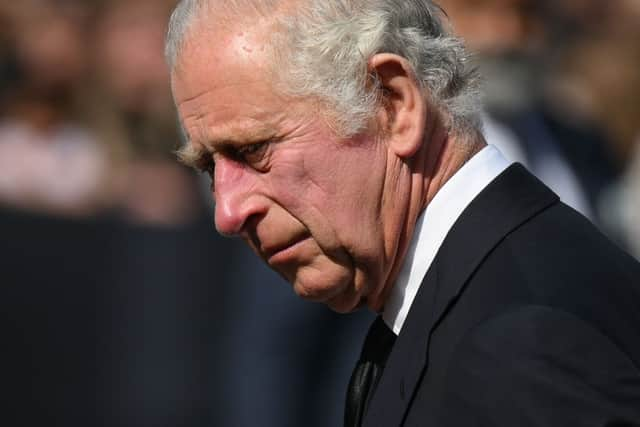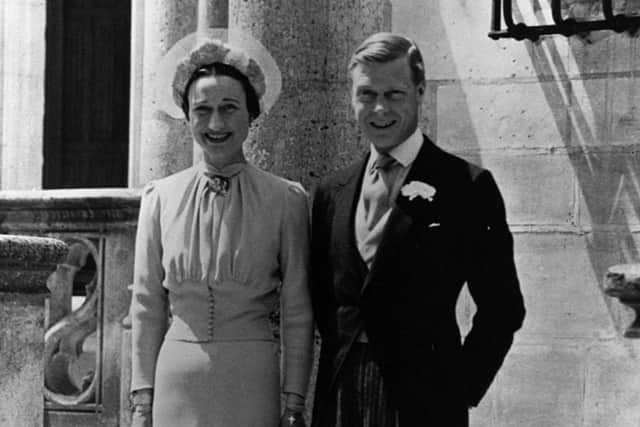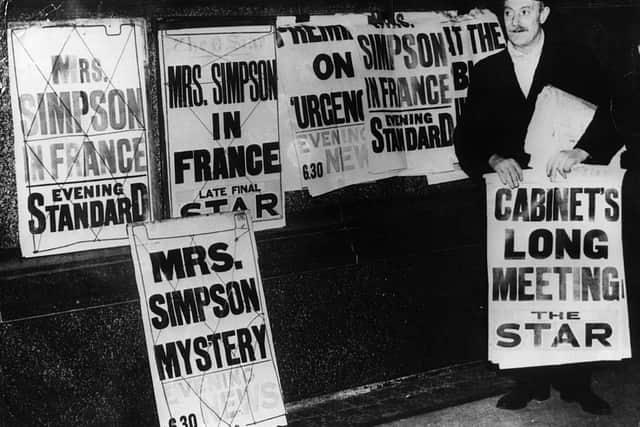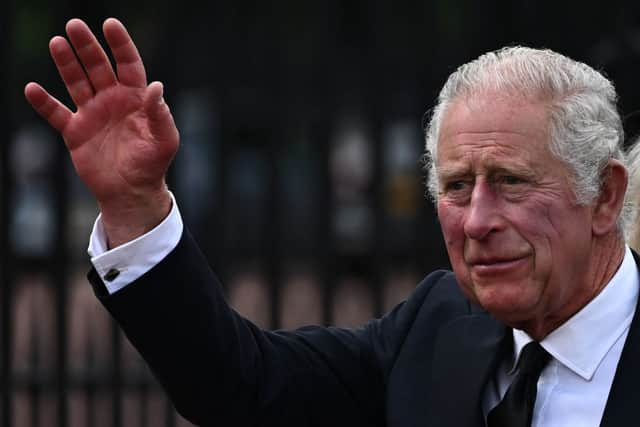Will King Charles abdicate the throne due to cancer? Abdication meaning, process, why did Edward VIII abdicate
and live on Freeview channel 276
King Charles has been diagnosed with cancer, Buckingham Palace has said.
Doctors found a separate issue while he was in hospital being treated for an enlarged prostate. The Palace has not confirmed the type but it said it is not prostate cancer.
Advertisement
Hide AdAdvertisement
Hide AdIn a briefing, it said: “His Majesty has been treated for benign prostate enlargement. It was during this intervention that a separate issue of concern was noted and subsequently diagnosed as a form of cancer. This second condition will now receive appropriate treatment."
Will he have to abdicate - and have any other monarchs abdicated?


What does abdicate mean?
According to the Cambridge Dictionary, the word ‘abdicate’ is a verb meaning: ‘To stop controlling or managing something that you are in charge of.’
It is normally used in relation to the monarchy. If a king or queen abdicates, it means they have made a formal statement that they no longer want to serve in the role.
Why did King Edward VIII abdicate the throne?
Advertisement
Hide AdAdvertisement
Hide AdThere is precedent in the UK for a monarch abdicating the throne. King Edward VIII - the Queen’s uncle - was UK head of state for just 326 days before resigning on 10 December 1936.


Along with his brothers - including Albert, who later became George VI - King Edward signed an ‘Instrument of Abdication’, which was an official document declaring his intention to step down as King.
It read: “I, Edward the Eighth, of Great Britain, Ireland, and the British Dominions beyond the Seas, King, Emperor of India, do hereby declare My irrevocable determination to renounce the Throne for Myself and for My descendants, and My desire that effect should be to this Instrument of Abdication immediately.”
The document had to be voted on by Parliament on 11 December before Edward could officially be removed as head of state.
Advertisement
Hide AdAdvertisement
Hide AdThe reason why he stood down was because he wanted to marry American divorcee Wallis Simpson.
Other Royals, the Church of England and the politicians of the time were almost unanimously against the idea that the monarch would marry someone who had been married before.
In a radio broadcast that went out after his abdication became official, the King said it was “impossible to carry the heavy burden of responsibility and to discharge my duties as King” without the “help and support” of Ms Simpson.


After stepping down, Edward moved to France and married Ms Simpson in June 1937. He was given the title Duke of Windsor by the Queen’s father - George VI - and mostly lived abroad until his death in 1972.
Will King Charles III abdicate the throne?
Advertisement
Hide AdAdvertisement
Hide AdIt seems to be highly unlikely King Charles III would abdicate the throne, unless his illness got considerably worse.
Buckingham Palace said Charles was looking forward to "returning to full public duty as soon as possible" - which indicated he does not think he will have to abdicate. Reports also suggest the cancer has been caught early.


It said: "No further details are being shared at this stage, but His Majesty is receiving expert care and looks forward to returning to full public duty as soon as possible.”
The briefing note added: “His Majesty is grateful to his medical team for their expert care and swift intervention, is wholly positive about his treatment and looks forward to returning to full public duty as soon as possible.”
Comment Guidelines
National World encourages reader discussion on our stories. User feedback, insights and back-and-forth exchanges add a rich layer of context to reporting. Please review our Community Guidelines before commenting.